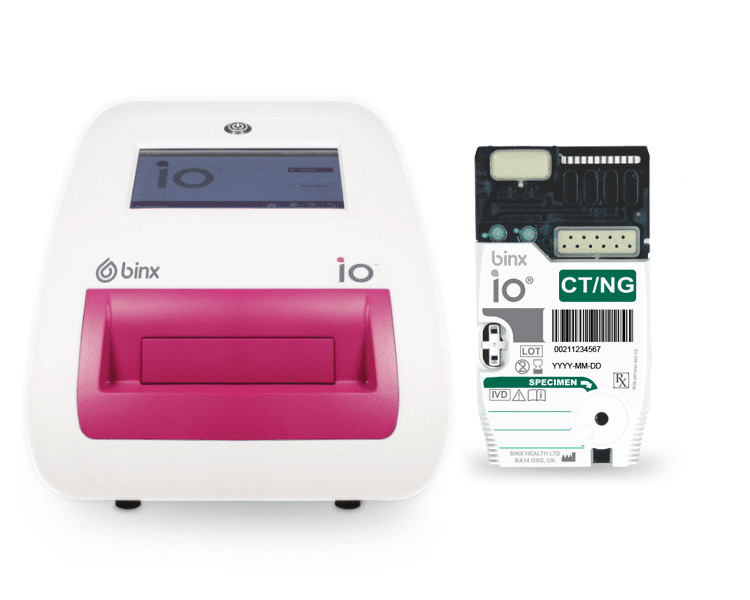
19 May Point-of-Care Testing Delivers Rapid Diagnosis of Two STDs
MedicalResearch.com Interview with:

Dr. Van der Pol
Barbara Van Der Pol, PhD, MPH
President, American STD Association
President-Elect, International Society fo STD Research
Professor of Medicine & Public Health
Director, STD Diagnostics Lab
Director, UAB STD Clinical Research Organization
University of Alabama at Birmingham
Birmingham, AL 35294
MedicalResearch.com: What is the background for this study?
Response: For many decades, public health programs focused on control and prevention of sexually transmitted infections (STI) have relied on lab based tests that required a 1-day to 1-week wait for test results. Efforts to shorten the duration of infection lead to treating at the time of the clinic visit based on the association between certain clinical signs or symptoms and the likelihood of infection.
Unfortunately, more than ½ of infected persons do not have signs or symptoms so they receive no treatment until test results are available. Thus, a test that could be performed at the clinical site with a limited wait time would improve the accuracy of treatment and shorten the duration of infection. Such a strategy will hopefully reduce the number of return clinic visits, the possibility of transmission, and the potential for consequences of untreated infection such as infertility.
MedicalResearch.com: What are the main findings?
Response: This study compared a new point of care test (the binx io CT/NG tests [binx health, Boston, MA]) that takes 30 minutes and can be performed by non-laboratory personnel to 3 commonly used laboratory-based tests for chlamydia and gonorrhea. The study found that the that the binx io CT/NG assay had excellent performance for women using vaginal swabs (that women can collect themselves or clinicians can obtain). Male urine samples also had good performances and the Food & Drug Administration has cleared both of these sample types for use with the test.

The binx io platform is a rapid, qualitative, fully-automated test, designed to be easy to use, and intended for use in POC or clinical laboratory settings, providing sample-to-answer result in about 30 minutes for the detection of chlamydia and gonorrhea.
MedicalResearch.com: What should readers take away from your report?
Response: Given that women bear the highest burden of consequences of untreated infection, this is an enormous step forward in our ability to test and treat accurately, regardless of the presence or absence of symptoms. Currently, in the US we only screen ~50% of women who should receive a test annually if they are under the age of 25. Having an easy-to-use rapid test can make this service more of a routine procedure and ensure that women’s sexual health needs are being met. While there are no generalized screening recommendations for men, access to an accurate test that does not require an extra clinic visit may result in improved management of men who do need STI testing.
MedicalResearch.com: What recommendations do you have for future research as a result of this study?
Response: Future studies will need to assess how clinic flow might change in order to improve the utilization of point of care tests such as the binx io CT/NG assay and other diagnostic assays that will be available in the near future. In a study performed in a university student health clinic, we found that by allowing patients to collect their own sample at registration/intake, io results were available within approximately 11 minutes of the end of their routine care visit. Most people were willing to wait that amount of time in order to receive results and treatment when necessary. Other clinic flow changes might further increase the efficiency with which rapid tests are used.
MedicalResearch.com: Is there anything else you would like to add? Any disclosures?
Response: In this CoVID era, the findings of this study are relevant to how we will deploy point of care diagnostics not only into our routine clinical settings, but also in non-clinical venues. While these changes are being driven by a dreadful pandemic, eventually, other health concerns including sexual health will need to be addressed. Access to tests like the binx io CT/NG assay may facilitate sexual health diagnostics with more limited patient-provider contact which increases safety for all.
Dr. Van Der Pol receives research support to her institution from: Abbott Molecular, BD Diagnostics, BioFire Molecular, binx health, Cepheid, Hologic, NeuMoDx, Rheonix, Roche Molecular and SpeeDx
Citation:
Van Der Pol B, Taylor SN, Mena L, et al. Evaluation of the Performance of a Point-of-Care Test for Chlamydia and Gonorrhea. JAMA Netw Open. 2020;3(5):e204819. doi:10.1001/jamanetworkopen.2020.4819
The information on MedicalResearch.com is provided for educational purposes only, and is in no way intended to diagnose, cure, or treat any medical or other condition. Always seek the advice of your physician or other qualified health and ask your doctor any questions you may have regarding a medical condition. In addition to all other limitations and disclaimers in this agreement, service provider and its third party providers disclaim any liability or loss in connection with the content provided on this website.
Last Updated on May 19, 2020 by Marie Benz MD FAAD
